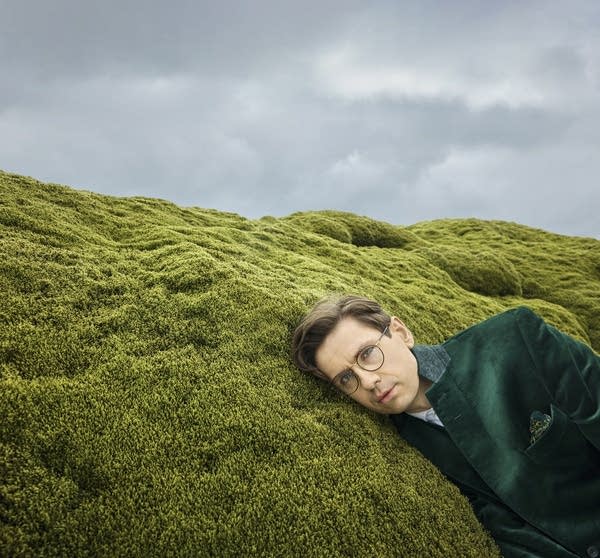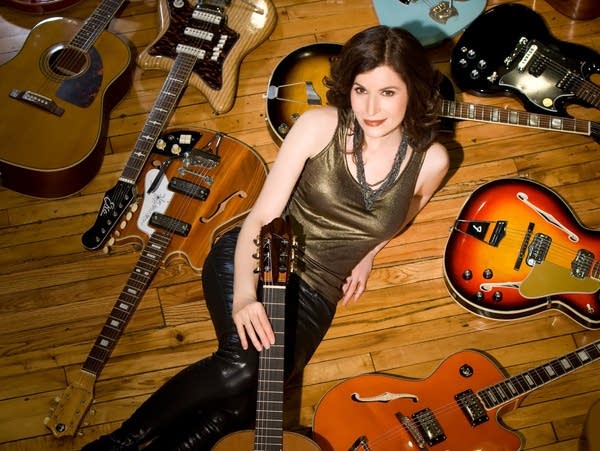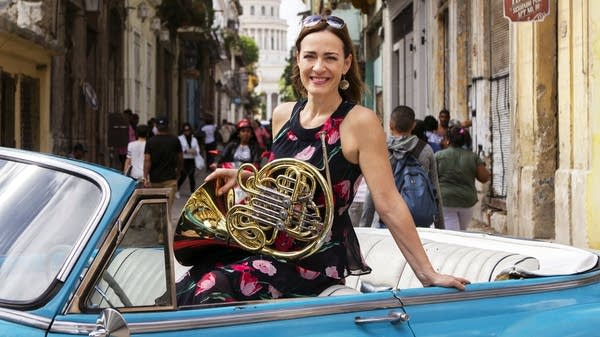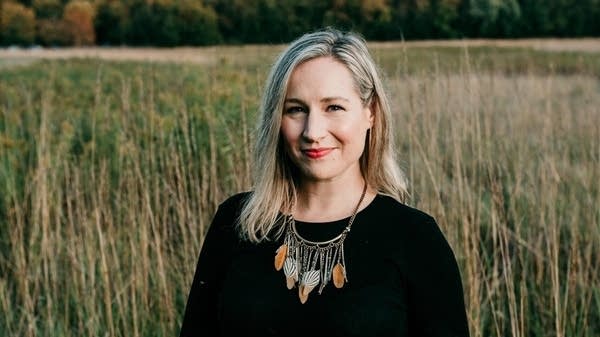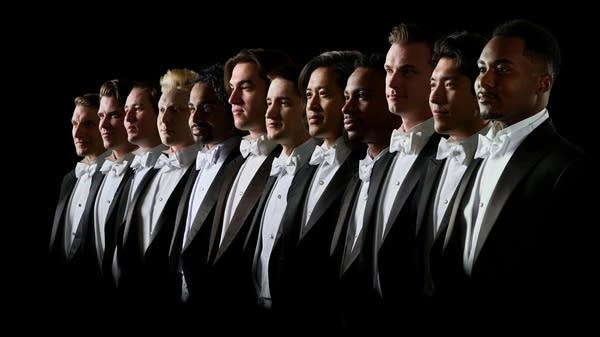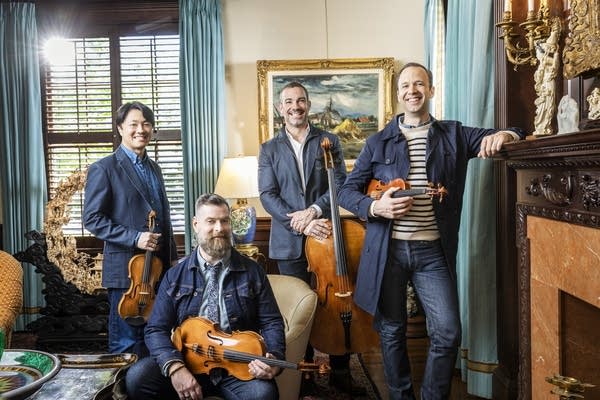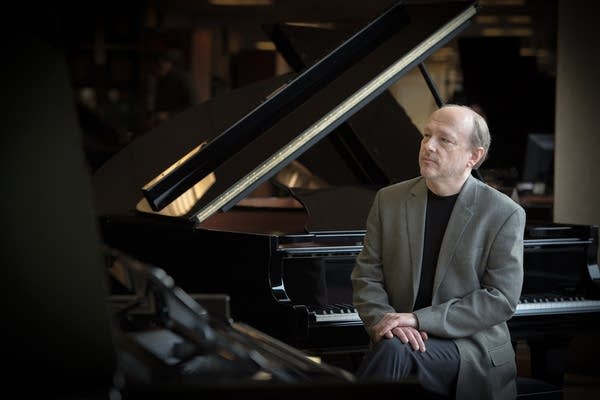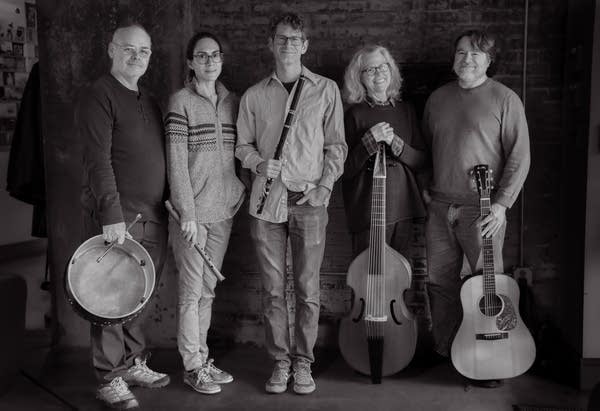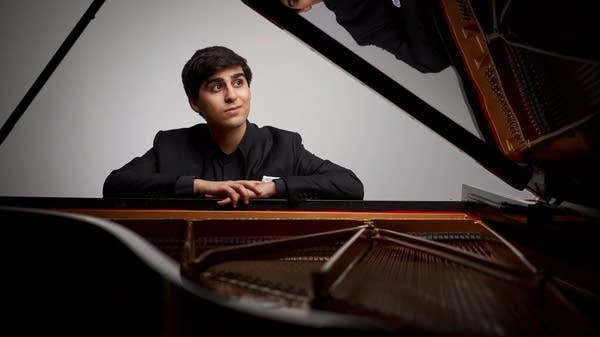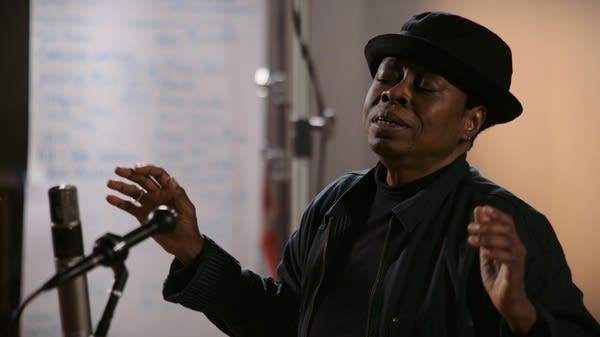
Laurel Zucker's new disc is a series of musical postcards, from places she's been, or visited in her imagination.
The saying goes, "Write what you know." For flutist Laurel Zucker, a move to Washington state meant getting to know a whole new set of vistas. Her new CD, Coffeeland, is a collection of postcards from her new home.
One of the very first things she saw was right in her own backyard.
Zucker: "When we were looking for houses, I looked at this house when it was raining, very cold. There was this picture window in the living room that looks out on a forest. It was unbelievably green. And it was kinda spooky-looking when it was all icy."
She says that view made her want to write something dark and beautiful. "Green Forest" is the middle movement of her Washington State Concerto. The low strings provide a dark green backdrop to icy droplets from the flute. The opening movement, "Coffeeland," gives the CD its title and seems to have a slight Brazilian flavor. Maybe that wasn't an accident?
Zucker: "The South American blend is my favorite kind of coffee, so maybe I did put that in there..."
The last movement of the concerto tells the story of the Tacoma Narrows Bridge (aka Gallopin' Gertie), a suspension bridge built in 1940 to connect Gig Harbor to Tacoma. It suffered a spectacular failure — whipping and swaying in the wind, roadway undulating, until the cables finally snapped and the bridge fell into the waters below.
Zucker: "When I start that particular piece, it's kind of a strange-sounding waltz, then I start doing a lot of chromatic scales going down, kind of crashing down. That's supposed to be the bridge crumbling and falling into water."
There's some jaw-dropping film footage of this incident available on YouTube, and in fact, Laurel Zucker synced her composition to the most well-known clip.
Zucker says her musical influences are far-reaching and sometimes they show up in odd ways.
Zucker: "I like all kinds of music. I like rock 'n' roll, I like folk, jazz, and all the kind of detailed music in between. Sometimes I'll write something that I might've heard on a pop station years ago. For instance, in 'Gallupin' Gertie,' towards the end, I kept hearing 'Everybody Dance Now,' and so I stuck it in there. The bridge is falling down, the world is falling apart, and Everybody Dance Now!"
Another Washington-centric piece on the new CD is the Orca Quintet. A timely trip to Port Townsend was the inspiration for this wind quintet.
Zucker: "So we went out, on apparently the best day in years. And we saw baby orcas playing around — they were just a few feet from the boat. It was like a whole show. They were so beautiful."
She paints another picture of the coast in the second movement, "Lighthouse on the Harbor."
Zucker: "When I think about any lighthouse, I think about a lonely structure. It's the only light at night, and it's usually not near any other buildings. So I wrote for solo French horn accompanied by the [quintet] and I tried to evoke a magnificent, kind of lonely beach type of sound."
The horn is just the right instrument for that, evoking the mournful tones of the foghorn that sounds when the lighthouse is cloaked in fog.
It's not just her own backyard that inspires Laurel Zucker to write music. She travels often, and various pieces on the CD reflect those adventures: boating on the Nile in Egypt, visiting street markets in Ecuador and Panama, and another river, this one in Brazil.
Zucker: "The Christolino River is located in Alta Floresta, Brazil. It's way out in the jungle. Every night there'd be these swarms of thousands of different-colored butterflies rising in a spiral up right next to the river. You could stand right in the middle and they'd be spiraling around you, and it was beautiful."
Zucker also included several pieces whose focus is not earth, but sky. She's interested in the theory of pole reversal — wherein the Earth's geomagnetic fields reverse their polarity — and in a controversial Air Force installation known as HAARP (High-frequency Active Auroral Reasearch Program). The latter has something to do with megawatt radio waves being shot at extremely high speed into the ionosphere, with the goal of completely disrupting communications during wartime. Not surprisingly, HAARP is the spikiest piece on the album.
A gentler take on the night sky is Aurora Borealis. Interestingly, this piece is actually a departure from "write what you know." Laurel Zucker has never seen the aurora in real life, so this work is her attempt to conjure it musically.
Close your eyes and imagine each instrument as its own color, swelling and blending and shimmering with its fellows against a black northern sky. It's a beautiful example of the power of music to take you places you've never been — one of many on this CD.
Free download from Coffeeland, courtesy of Laurel Zucker:
Right-click (or command-click on a Mac) to download
The download is Zucker's "Coffeeland," from her larger work Washington State Flute Concerto.
Love the music?
Show your support by making a gift to YourClassical.
Each day, we’re here for you with thoughtful streams that set the tone for your day – not to mention the stories and programs that inspire you to new discovery and help you explore the music you love.
YourClassical is available for free, because we are listener-supported public media. Take a moment to make your gift today.
Your Donation
About New Classical Tracks®
Host Julie Amacher provides an in-depth exploration of a new classical music release each week.
Subscribe on Apple Podcasts, TuneIn, Radio Public, or RSS.


